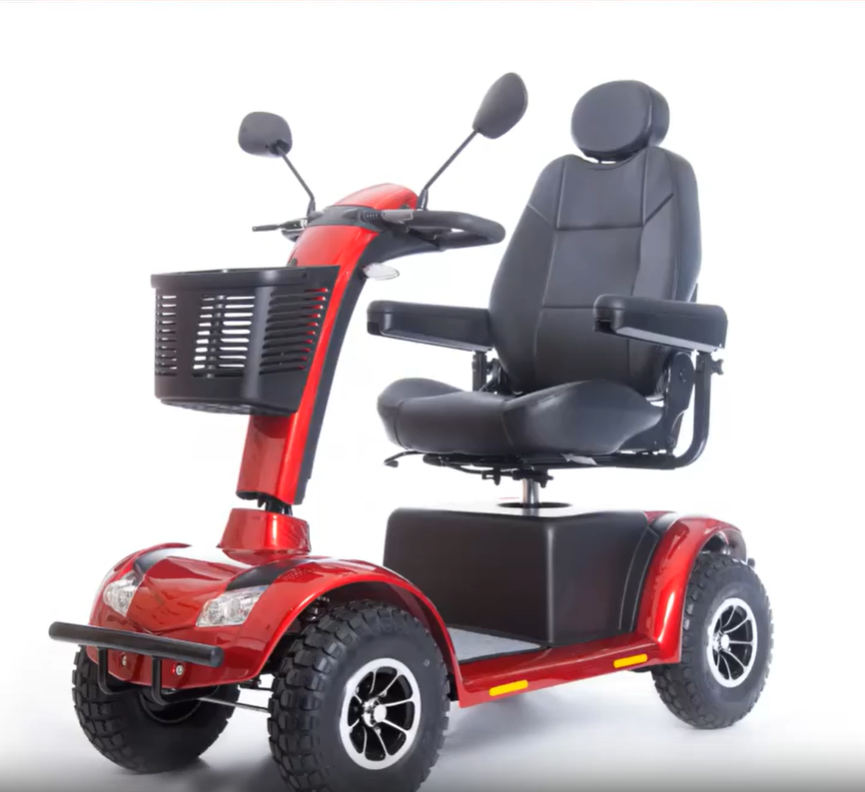A Complete Guide To Mobility Scooters For Seniors
Mobility scooters have become an essential tool for many seniors seeking to maintain their independence and quality of life. These electric-powered vehicles offer a convenient and comfortable way for older adults to navigate their surroundings, whether at home, in stores, or outdoors. As the population ages, the demand for mobility scooters continues to grow, prompting manufacturers to develop a wide range of options tailored to various needs and preferences.

What are mobility scooters and how do they benefit seniors?
Mobility scooters are battery-powered vehicles designed to assist people with mobility challenges in moving around independently. These devices typically feature a seat, handlebars for steering, and a platform for the feet. Unlike wheelchairs, mobility scooters are operated using a throttle control and can travel at speeds ranging from 3 to 8 miles per hour.
The benefits for seniors are substantial. Mobility scooters can help reduce fatigue during daily activities, enable participation in social events, and provide access to shopping centers, parks, and other public spaces. They also help maintain physical independence, which can positively impact mental health and overall quality of life. Many seniors find that mobility scooters allow them to continue enjoying outdoor activities they might otherwise have to give up.
What features should seniors look for in mobility scooters?
When selecting a mobility scooter, several key features deserve careful consideration. Weight capacity is crucial, as most scooters accommodate between 250 to 400 pounds. Battery life determines how far the scooter can travel on a single charge, typically ranging from 10 to 30 miles depending on the model.
Seat comfort and adjustability are essential for longer trips, while storage options like baskets or compartments add practical value. Ground clearance affects the scooter’s ability to navigate different terrains, and turning radius impacts maneuverability in tight spaces. Safety features such as lights, reflectors, and horn systems are particularly important for outdoor use. Additionally, portability features like disassembly options can be valuable for seniors who need to transport their scooters in vehicles.
What are the different types of mobility scooters available?
Mobility scooters generally fall into several categories based on their intended use and design. Travel scooters are lightweight and often disassemble for easy transport, making them ideal for seniors who want to take their scooters on trips or store them in small spaces. These typically have smaller batteries and reduced weight capacity but offer excellent portability.
Mid-size scooters provide a balance between portability and performance, offering more comfort and longer battery life than travel models while remaining manageable for most users. Heavy-duty scooters are designed for larger individuals or those needing maximum stability and range, featuring robust construction and powerful motors. Three-wheel scooters offer better maneuverability and tighter turning radius, while four-wheel models provide enhanced stability and are better suited for outdoor terrain and longer distances.
What are the typical costs associated with mobility scooters?
The cost of mobility scooters varies significantly based on type, features, and quality. Travel scooters typically range from $600 to $2,000, while mid-size models generally cost between $1,200 and $3,500. Heavy-duty scooters often range from $2,000 to $5,000 or more, depending on specifications and features.
| Scooter Type | Provider | Price Range | Key Features |
|---|---|---|---|
| Travel Scooter | Pride Mobility Go-Go | $1,200 - $1,800 | Lightweight, disassembles easily |
| Mid-Size | Drive Medical Scout | $1,500 - $2,500 | Balanced performance, comfortable seating |
| Heavy-Duty | Golden Technologies Buzzaround | $2,500 - $4,000 | High weight capacity, extended range |
| 4-Wheel | Merits Health Products | $1,800 - $3,200 | Enhanced stability, outdoor capability |
Additional costs include insurance coverage, which may partially cover the expense if the scooter is deemed medically necessary. Maintenance, replacement batteries, and accessories like covers or additional storage can add to the overall investment. Medicare may cover mobility scooters under specific conditions when prescribed by a healthcare provider.
Prices, rates, or cost estimates mentioned in this article are based on the latest available information but may change over time. Independent research is advised before making financial decisions.
How do seniors maintain and care for their mobility scooters?
Proper maintenance ensures mobility scooters remain reliable and safe for daily use. Battery care is fundamental, requiring regular charging even when not in use and proper storage during extended periods of non-use. Most batteries last 12 to 18 months with proper care, and replacement typically costs between $100 and $300.
Regular cleaning helps prevent dirt buildup that can affect mechanical components. Tire pressure should be checked monthly, and tires should be inspected for wear. Moving parts may require occasional lubrication, and electrical connections should be kept clean and dry. Many manufacturers recommend annual professional servicing to identify potential issues before they become serious problems.
Storage considerations include keeping the scooter in a dry, temperature-controlled environment when possible and using covers to protect against dust and moisture. Seniors should also familiarize themselves with basic troubleshooting techniques and keep user manuals accessible for reference.
Mobility scooters can significantly enhance the quality of life for seniors experiencing mobility challenges. By understanding the various types, features, costs, and maintenance requirements, seniors can make informed decisions that best meet their individual needs and circumstances. Proper selection and care of a mobility scooter can provide years of reliable service and continued independence.
This article is for informational purposes only and should not be considered medical advice. Please consult a qualified healthcare professional for personalized guidance and treatment.




